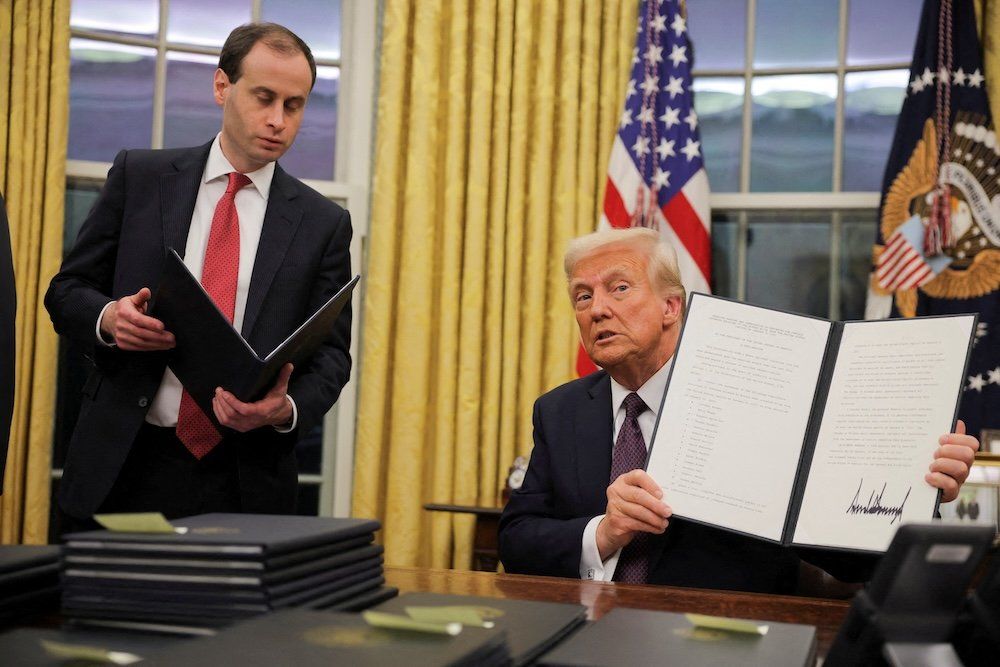Legal scholar Lee Kovarsky said in an an op-ed published in the New York Times Wednesday that President Donald Trump has "transformed the pardon practice into a menacing new frontier of presidential power."
The author characterized Trump's recent pardons as a case of “patronage pardoning,” suggesting that the president is diminishing the anticipated consequences for misconduct among his loyalists by overtly pardoning political allies.
"This blunt instrument of venality and regime control is a standing public commitmentto protect and reward loyalism, however criminal," Koversky added.
He continued: "The defining feature of patronage pardoning is the use of clemency tomake regime loyalists less responsive to the threat of criminal punishment. The more partisan and outrageous the pardons, the stronger the signal transmitted to those contemplating loyalist misconduct. President Trump’s pardons may induce people to break conventional criminal laws, but they may also induce criminal interference with official functions — through perjury, obstruction and defiance of court orders."
READ MORE: 'Mean bimbo': Joni Ernst's tactic of ‘pretending to be stupid’ detailed in analysis
He offered three "legal innovations that can contain the damage" done by Trump's pardons.
Kovarsky emphasized that presidential clemency is limited to federal offenses, which means states can be allowed to prosecute certain conduct that also violates federal law. He argued that state conspiracy prosecutions are particularly effective because they enable legal action wherever a conspirator took steps to advance the shared plan. He cited examples of prosecutors in Arizona, Georgia, Michigan, and Wisconsin who charged individuals involved in the 2020 Electoral College certification interference, despite mixed outcomes.
The second solution he proposed is that federal judges can utilize civil contempt sanctions to enforce compliance with court orders, particularly when dealing with administration officials who may defy judicial directives.
The University of Texas-Austin law professor further pointed out that unlike criminal contempt, which serves a punitive purpose and can be pardoned by the president, civil contempt is remedial, aiming to coerce future compliance, and cannot be pardoned. However, he noted that recent legislation has introduced provisions that could undermine this enforcement mechanism.
READ MORE: 'Not the right fit for the job': Trump education chief slammed for 'unbelievable' hearing
Koversky emphasized that state and local officials must be prepared to pursue civil penalties for misconduct, as presidential pardons do not extend to civil violations.This, he noted, is particularly significant in the District of Columbia, where the president can pardon local offenses.
However, individuals harmed by such conduct can seek civil damages, and the locally elected attorney general's office can initiate lawsuits on behalf of the public, the author wrote.
Trump has utilized his executive clemency power to grant pardons to individuals convicted of various offenses, including white-collar crimes and political corruption.
Critics argue that these actions may reflect a tendency to favor allies and supporters, potentially undermining public confidence in the impartiality of the justice system.
READ MORE: 'I would lead the charge': Trump says he agrees with Democrats on this major policy issue
AlterNet reached out to the Department of Justice for comment.
